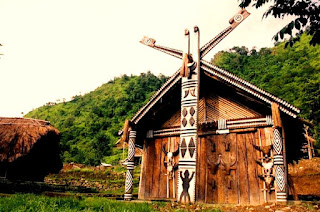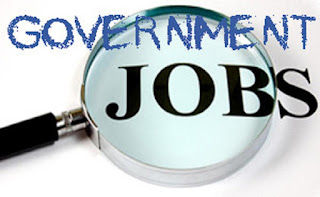3000-2600 BC
|
Harappan Civilisation
|
323 BC
|
Alexander the Great dies.
|
265 BC
|
Kalinga war (led by Ashoka, where around 2,00,000 people were killed).
|
320 AD
|
Chandragupta I establishes the Gupta dynasty (some also
attribute the establishment of the dynasty to Sri Gupta).
|
985 BC
|
The Chola dynasty established under the reign of Rajaraja.
|
1191
|
The first battle of Tarain (Prithvi Raj Chauhan defeats
Md. Ghori).
|
1192
|
The second battle of Tarain (Md. Ghori defeats Prithvi Raj).
|
1206
|
Slave dynasty established by Qutab Uddin Aibak(he was a
slave of Md. Ghori)- he was succeeded by son-in-law, Iltutmish.
|
1236-1239
|
Razia Sultana, daughter of Iltutmish, becomes the first and only Muslim
lady to rule in the Delhi sultanate.
|
1290
|
Jalaludin Firuz Khilji establishes the Khilji dynasty in
Delhi.
|
1298
|
Marco Polo visits India.
|
1333
|
Ibn Batutah arrives in India(wrote “Rehla”).
|
1498
|
May 27th: Vasco da Gama reaches Calicut.
|
1526
|
First battle of Panipat- Babur defeats Ibrahim Lodi, and
establishes the Mughal dynasty.
|
1530
|
Babur dies- succeeded by Humayun.
|
1556
|
Second battle of Panipat- Akbar defeats Hemu.
|
1600
|
East India Company (EIC) constituted.
|
1608
|
Captain Hawkins visits Jahangir’s court- fails to get
permission on trading rights.
|
1613
|
Sir Thomas Roe gains permission to set up factory in Surat.
|
1639
|
Fort St. George built in Madras by EIC.
|
1707
|
Death of Aurangzeb.
|
1739
|
Nadir Shah of Persia conquers Delhi- steals the Kohinoor
and the Peacock Throne.
|
1756
|
June 20: the Black-Hole tragedy (Fort William attacked by Siraj-ud-daula
where 123 out of 146 English prisoners died of suffocation after spending a
night in a very small confinement).
|
1757
|
June 23th: Battle of Plassey(Revenge against
Siraj-ud-Daula by the British led by Clive and Watson- bribed Mir Jafar sided
with the British).
|
1760
|
Battle of Wandiwash- English defeats the French.
|
1758
|
Marathas ousted Timur, son of Ahmed Shah Abdali, and
occupied Punjab.
|
1761
|
Third battle of Panipat- Ahmed Shah attacks and defeats the Marathas.
|
1764
|
Oct. 23: Battle of Buxar- the English defeats the allied
Indian powers of Mir Qasim(Nawab of Bengal), Shuja-ud-Daula(Nawab of Awadh)
and Shah Alam II(Mughal king).
|
1765
|
The English gets Diwani rights in Bengal, Bihar and Orissa.
|
1767-69
|
First Anglo- Mysore war: Hyder Ali defeats the British.
|
1772
|
Warren Hastings appointed Governor of Bengal.
|
1773
|
The Regulating Act passed by the British parliament-
first time when the powers of EIC company were checked upto some extent;
creation of the post of Governor General of Bengal; Supreme Court established
at Calcutta.
|
1774
|
Warren Hastings becomes the first Gov.Gen of Bengal(appointed by the
EIC).
|
1775-82
|
First Anglo-Maratha war- ends with the Treaty of Salbai(20
year peace treaty).
|
1780-84
|
The second Anglo-Mysore War- Hyder Ali dies and is succeeded by son Tipu
Sultan- ends with the Treaty of Mangalore.
|
1784
|
Pitt’s India Act passed- council members of Governor
General reduced to 3 from 4; Asiatic Society founded by Sir William Jones.
|
1790-92
|
The third Mysore war- ends with Treaty of Seringapatam.
|
1799
|
Fourth Mysore war- the English defeats Tipu sultan-
partition of Mysore.
|
1803-05
|
Second Anglo-Maratha war- ends with the Treaty of Bassien.
|
1813
|
Charter Act passed-Trade monopoly of EIC restricted,
except tea trade and trade with China.
|
1818
|
Third Anglo-Maratha war- Marathas get defeated and sign the Subsidiary
alliance.
|
1828
|
Lord William Bentinck becomes Governor General of India.
|
1829
|
Bhramo Samaj founded by Raja Ram Mohan Roy; prohibition of Sati and
child infanticide.
|
1833
|
Charter Act of 1833 passed- Gov.Gen of Bengal renamed as
Gov.Gen of India; trade monopoly of EIC ends.
|
1848
|
Lord Dalhousie becomes the Gov.Gen of India; Satara annexed under the
Doctrine of Lapse.
|
1853
|
First Indian Railway from Bombay to Thane; first
Telegraph from Calcutta to Agra.
|
1857
|
Sepoy Mutiny or the Revolt of 1857; Universities of Calcutta, Bombay and
Madras set up; end of Mughal dynasty.
|
1858
|
EIC withdraws from India- administration comes directly
under the control of the British Crown; Gov.Gen. of India from here on was
known as Viceroy.
|
1859
|
Indigo revolt in Bengal (“Nil Darpan”, book written on the revolt by
Dinabandhu Mitra).
|
1875
|
Arya Samaj founded by Swami Dayanand Saraswati in Bombay.
|
1877
|
Delhi Durbar- the Queen of England proclaimed as the Empress of India.
|
1879
|
Vernacular Press Act and Arms Act passed; duties on
cotton abolished.
|
1885
|
Indian National Congress(INC) founded by Allan Octavian Hume- W.C.
bannerji was the first president of INC.
|
1899
|
Lord Curzon becomes the Viceroy(till 1905).
|
1905
|
Oct 16th: Partition of Bengal on religious ground; INC
declares Swadeshi Movement.
|
1906
|
31st Dec: Muslim League established by
Salimullah Khan at Decca; Servants of India Society founded by G.K. Gokhale.
|
1907
|
INC session at Surat presided by
Rashbihari Ghosh- split within INC between moderates and extremists, known as
Surat split.
|
1909
|
Gandhi writes Hind Swaraj; Morley-Minto Reforms Bill of
Indian
Councils Act passed- granted separate electorate for the Muslims.
|
1911
|
Delhi Durbar- King George V declared Emperor of India.
|
1912
|
Rabindranath Tagore publishes “Gitanjali”
|
1913
|
Gadar Party formed by Lala Hardayal at San Francisco.
|
1915
|
9th Jan: Gandhi returns to India(thus, this
day is celebrated as NRI day.
|
1916
|
Lucknow Pact signed between INC and Muslim League; Annie Besant starts
Home Rule Movement on 25th Sept.
|
1917
|
INC gets its first woman President- Annie Besant.
|
1919
|
 |
Jallianwala Bagh massacre at Amritsar
|
Rowlatt Act;
Jallianwala Bagh massacre at Amritsar(13th April)
where General O. Dyer kills around 400 people- Rabindranath Tagore renounced
his Knighthood title(30th May); Montague-Chelmsford Reforms.
|
1920
|
10th Sept: INC approves Gandhi’s
Non-cooperation movement.
|
1921
|
Harappan civilisation discovered by Dayaram Sahani; Moplah rebellion in
Malabar(Kerala).
|
1922
|
5th Feb: Chauri Chaura incident where 22
policemen were killed; 12th Feb: Gandhiji suspends Non-cooperation
movement; R.D. Banerjee excavates Mohenjo-Daro.
|
1923
|
Swaraj party formed by Motilal
Nehru and C.R. Das; Indian party started by Madan Mohan Malviya.
|
1924
|
21st Aug: Gandhiji elected as President of INC
in Belgaum.
|
1925
|
K.B. Hedgewar establishes RSS in Nagpur; E.V. Ramaswamy Naicker launches
Self-respect movement for the people of lower caste; Kakori train conspiracy.
|
1927
|
Indian Navy Act; Simon commission constituted in Britain.
|
1928
|
3rd Feb: Simon Commission reaches India.
|
1929
|
8th April: Bhagat Singh and Batukeshwari Dutt
throw bomb in the Central Legislative Assembly where031st Dec:
Jawaharlal Nehru, President of INC at Lahore session, hoists the tricolour
flag and also demands Purna Swaraj(total independence)
|
1930
|
 |
| Gyara Murti: Dandi march |
1st Jan: Gandhi launches the civil disobedience movement; 26
Jan: the first independence day of India; 12th March: Gandhi
begins Dandi march(salt satyagraha), and was followed by 78 people; 30th Nov: first round table conference at
London(Muslim League and Hindu Mahasabha attends it, but not INC).
|
1931
|
5th March: Gandhi-Irwin pact(many political
leaders released from prison through the pact); 23rd March: Bhagat
Singh, Sukh Dev and Rajguru were executed; 7th Sept: Gandhi
represents INC in the second round table conference.
|
1932
|
16th Aug: British PM Ramsay McDonald announces the “Communal
Award”(which would lead the creation of separate electorates for each
minority in India; 7th Nov: Third round table conference.
|
1935
|
4th Aug: Government of India Act 1935 passed(under
which the federal structure of administration was created, and general
elections to be held).
|
1936
|
All India Radio formed.
|
1937
|
First elections held under the GOI Act 1935- results
declared in Feb 1937 where INC won 8(6 and 2 more by coalition) out of 11
provinces, Muslim League could not win a single province.
|
1938
|
20th Feb: Subhas Chandra Bose elected as INC president.
|
1939
|
March: SC Bose re-elected as INC president after
defeating Pattabhi Sitaramayya(candidate supported by Gandhi). Bose later
resigned and in April started Forward Bloc; Sept: Viceroy Linlithgow declares
that India is also a part of WW-II; Oct-Nov: INC ministers resign from
provinces in protest against the suo motu decision of the British.
|
1940
|
At the Lahore session, Muslim League passed the “Two-nation Theory” of
Md. Ali Jinnah; 10th Aug: August Offer announced by
Viceroy(rejected by INC).
|
1942
|
22nd March: Cripps Mission arrives in
India(both Congress and Muslim League rejects Cripps mission); 7th
Aug: Quit India Movement begins (Gandhiji gives the famous slogan “Do or
Die”).
|
1943
|
Bengal Famine
|
1945
|
31st Dec: Indian National Army(INA) trials,
‘aka’ Red Fort Trials(Bhulabhai Desai, Tej Bahadur Sapru and JL Nehru stood
for defence of INA); Wavell Plan.
|
1946
|
12th Jan: 1st demonetisation of Indian currency;
day of Aug 16 fixed as “Direct Action Day” by Muslim League; 2nd
Sept: interim government formed(it had 14 members- 5 from Muslim League).
|
1947
|
6th Jan: AICC accepts partition of India by a
majority vote of 99 out of 151 votes. 2nd June: Lord Mountbatten
declares the decision of the British on partition of India on June 3(known as
the June 3rd Plan); 15th Aug: Independence day(except 3
out of 565, all states incorporated into the union of India).
|
1948
|
30th Jan: Gandhi is assassinated by Nathuram Godse in Birla
House, New Delhi; 21st June: C Rajagopalachari becomes the first
and only Indian Gov.Gen. of India.
|
1949
|
 |
| Preamble of the Indian Constitution |
26th Nov: Constitution of India adopted by the
Constituent Assembly headed by B.R. Ambedkar, after 2 years, 11 months and 18
days of preparation.
|
1950
|
26th Jan: Constitution comes into force with Universal adult
franchise; Dr. Rajendra Prasad becomes the first President of free India; 28th
Feb: formation of the Planning Commission; 7th Oct: Missionaries
of Charity founded by Mother Teresa in Calcutta.
|








The details spot on. Waiting for more...
ReplyDelete